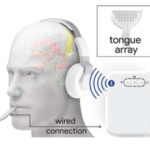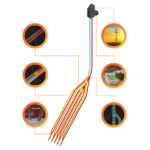-
Up-to-date statistics on the current state of AI usage in universities by teachers and students;
-
Provides an overview of AI tools currently in use in universities;
-
Describes the limitation of using AI as a study tool;
-
Offers tips on AI’s ethical use and how to maximize its capabilities for students;
-
Describes current punishments and penalties for cheating using AI;
-
Provides a checklist of questions for students to ensure AI’s ethical use before, during, and after an assignment.
Here are some interesting statistics regarding the use of AI in post-secondary education:
-
The total value of AI used in education is forecasted to reach US $53.68 billion by the end of 2032.
-
68% of students say using AI has positively impacted their academic performance.
-
Educators using AI say it helps speed up the grading process by as much as 75%.
A recent survey by EdWeek in which 863 teachers, principals and school district leaders participated produced the following response when asked if AI should be used regularly in classrooms:
- 47% were very or somewhat negative.
- 13% were neutral or believed AI would have no impact.
- 27% were somewhat to very positive.
- 14% were unsure of what AI platforms were.
The general public survey done by YouGov produced interesting results when asked what course of action educators should take with students related to AI use:
- 52% wanted educators to teach about the ethical uses of AI.
- 24% were unsure how AI should be approached in schools.
- 24% wanted AI banned or its use restricted in schools.
A Turnitin survey noted that 26% of students thought that using generative AI tools would harm their work. In the same survey, 75% of educators thought that AI education would prove pivotal for workplace success in the future.
How AI is Being Used in Universities Today
- AI chatbots and virtual assistants are being used to provide student support in the absence of human staff.
- AI is being used to create personalized learning programs to engage students where a one-size-fits-all approach doesn’t work.
- AI surveillance technology is used currently to identify potential threats and enhance campus security.
- AI is helping to speed up the grading of papers using tools like Gradescope.
- AI is helping researchers to speed up the analysis of large datasets.
AI Study Limitations
For students relying on AI to help get them to pass a course, reliance on what remains an unfinished product has its perils. AI can best be described as a work in progress. The major players like OpenAI and Microsoft, Alphabet (Google), Meta Platforms, IBM, NVIDIA, and several others keep releasing new AI tools to get the anomalies and bugs out.
AI programs reflect the biases of their creators often resulting in information that is inaccurate or incomplete. AIs are trained on large datasets that mine Internet resources and large databases. Often the information they are using to learn is not current with the answers to queries from students reflecting this.
I know that when I recently asked Copilot (Microsoft’s Windows 11 AI), Google Gemini (formerly Bard), and Monica (a UC Berkeley Anthropic AI) to respond to a question, the results produced varied dramatically.
Ethical Uses of AI in Learning
AI can help students but it can also lead students to cheat. The student guide provides a checklist for AI’s use from brainstorming to research, and writing. The list includes:
Confidence in AI Dropping With Educational Implications
Ina Fried and Ryan Heath, who write for Axios AI+, recently described the decline in public trust related to AI companies. They quote from a global survey that shows a drop from 61% five years ago to 53% today. For the United States, the drop over the same period has gone from 50% to 35%. Will this trend have implications for how AI gets used in education?
Schools, educators and students are finding that the usage of AI is in a fluid state currently. Now, governments and institutions are seeing public trust eroding in the technology with a call for more AI regulation. It will be interesting to see what an AI student guide will state a year from now.
















